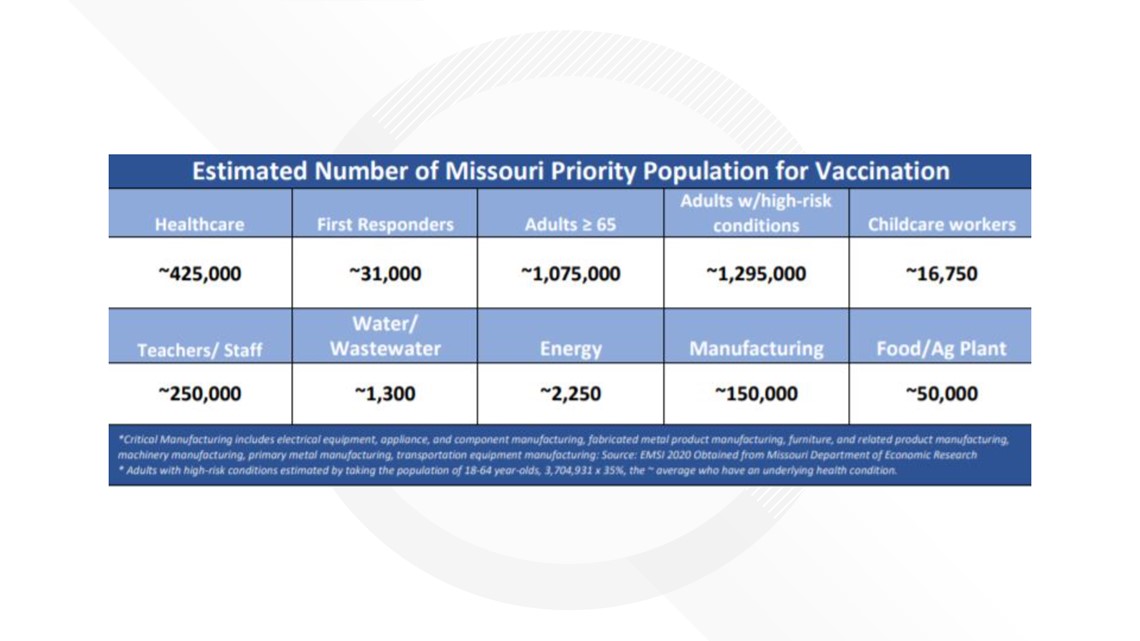ST. LOUIS — As more trials of COVID-19 vaccines continue, states are preparing for when the vaccines will be available.
According to the Centers of Disease Control and Prevention (CDC), when the Food and Drug Administration (FDA) first authorizes or approves the use of one or more COVID-19 vaccines in the United States, there may be a limited supply. This would mean that not everyone will be able to be vaccinated right away.
Missouri released its plan of who would be able to get the COVID-19 vaccine first. There will be a "'phased" approach to the COVID-19 vaccination in the state. The state's plans are based upon CDC guidance.
There will be three phases and in the first phase, there are two priority groups.
Phase 1A: All health care personnel and staff who have the potential for direct or indirect exposure to COVID-19 and are unable to work from home. This includes those in skilled nursing, long term care, assisted living and residential care facility staff along with patient-facing inpatient and outpatient health care personnel with underlying health conditions and all remaining patient facing health care workers.
Phase 1B: Those at increased risk for severe COVID-19 illness, including those over the age of 65, those with chronic illness, and those workers who are vital to keeping the essential functions of society running. Workers would include: public facing public health workers, first responders, child care workers, teachers and school staff, select state emergency management and emergency public work employees, drinking water-wastewater facilities, energy employees, critical manufacturing, food/AG plants and employer-defined "essential employees."
According to the state's plan, if insufficient vaccine supply requires further tiering, it'll be done by limiting the described populations to those who are over the age of 65 who are known to increase poor outcomes with COVID-19.


Phase 2: Remainder of those in Phase 1 populations that could not be vaccinated. Populations at increased risk of acquiring or transmitting COVID-19, these populations of consideration include racial and ethnic minority groups, housing-insecure individuals, people living and working in congregate settings, and other groups and other communities at higher risk of severe outcomes from COVID-19. The staff of manufacturing facilities identified as critical infrastructure or critical to national security is, by definition, essential to the economy and safety of the state.
Phase 3: Remainder of those in Phases 1 and 2.
According to the plan, Missouri will focus on making sure every Missourian who qualifies and needs or wants a COVID-19 vaccine receives the requested vaccine at no cost.
The intention is federally qualified health centers, rural health clinics, private providers, and pharmacies take on the majority of the vaccination effort for most adults in their areas. Local public health authorities and the state health authority will target vaccination efforts toward the most vulnerable populations, such as homeless populations with limited access to care and local incarcerated individuals, and assist with college and university vaccination efforts.
For this effort, Missouri plans to use a state mobile medical unit, as needed or requested, staffed with a DHSS team dedicated to that mobile vaccination unit.

